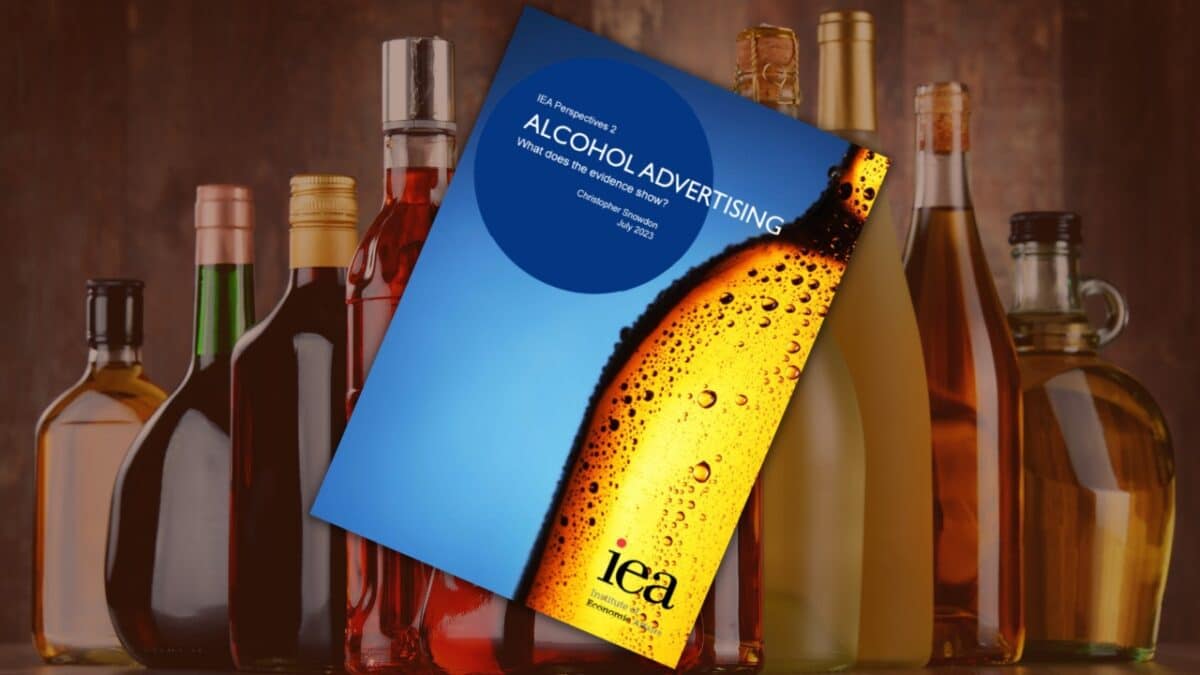Alcohol advertising bans are not evidence-based, finds new IEA report
SUGGESTED


IEA Research quoted in The Express

- Advertising bans have no significant effect on the overall demand for alcohol
- Alcohol industry advertising expenditure has no relationship with drinking levels
- Between 1991 and 2001, alcohol advertising fell by 10.8% in Britain, but alcohol consumption rose by 15.8%
- Advertising increases the sale of individual brands but does not increase total sales
- Gold standard Cochrane Review in 2014 found no robust evidence to support an alcohol advertising ban
As the Scottish government goes “back to the drawing board” on severely limiting alcohol advertising, a new report from the free market think tank the Institute of Economic Affairs (IEA) finds that the evidence does not support restrictions.
Public health campaigners have long insisted that alcohol advertising bans could help reduce sales and, by implication, associated harm. But Alcohol Advertising: What does the evidence show? highlights the lack of evidence that advertising bans decrease drinking.
In 2014, a Cochrane Review – widely considered the ‘gold standard’ of evidence in health policy – similarly found that “There is currently a lack of robust evidence for or against recommending the implementation of alcohol advertising restrictions.”
For example, three Canadian studies, based on advertising restrictions in British Columbia, Manitoba, and Saskatchewan, found no effect on consumption. A 2010 cross-sectional study from 17 OECD countries between 1975 and 2000 similarly found “advertising bans do not reduce alcohol demand”.
Report author and Head of Lifestyle Economics at the IEA, Christopher Snowdon, says alcohol producers pay for advertising to persuade drinkers to switch from rival products, not to increase overall consumption. Accordingly, economic studies have tended to find a lack of association between advertising spending levels and consumption across countries, which are likely driven by cultural factors. A study of alcohol advertising in the USA, for example, concluded that “brand-level spirits advertising results only in brand switching and does not increase the size of the spirits market.”
Studies favourable to restrictions have tended to ignore confounding factors or been replete with biases – like cultural differences, measurement problems, and selection and recall bias. For example, studies that show heavier drinkers report viewing more alcohol advertising are likely examples of ‘reverse causation’.
Without robust evidence that banning advertising reduces consumption, Snowdon concludes that state intervention is unjustified.
Report author and Head of Lifestyle Economics at the IEA, Christopher Snowdon:
“The claim that banning alcohol advertising would reduce the amount of alcohol-related harm in society has remarkably little evidence to support it. Advertising affects the market share of individual brands, but the amount of money spent on alcohol advertising has no effect on alcohol consumption overall. This is how advertising works in every other mature market, and it would be a surprise if alcohol were any different.
“Strident claims from anti-alcohol campaigners about advertising should be taken with a pinch of salt. This evidence review found that only a few high-quality studies have looked at this issue, and the evidence is, at best, mixed. A ban on alcohol advertising would certainly not be an evidence-based policy.”
ENDS
Notes to Editors
IEA spokespeople are available for live and pre-recorded broadcast
CONTACT: media@iea.org.uk / 07763 365520
A full copy of Alcohol Advertising: What does the evidence show? is available.
About the author
Christopher Snowdon is the Head of Lifestyle Economics at the IEA. He is the author of The Art of Suppression, The Spirit Level Delusion and Velvet Glove; Iron Fist. His work focuses on pleasure, prohibition and dodgy statistics. He has authored a number of publications including Sock Puppets, Euro Puppets, The Proof of the Pudding, The Crack Cocaine of Gambling and Free Market Solutions in Health.
The mission of the Institute of Economic Affairs is to improve understanding of the fundamental institutions of a free society by analysing and expounding the role of markets in solving economic and social problems. The IEA is a registered educational charity and independent of all political parties.



